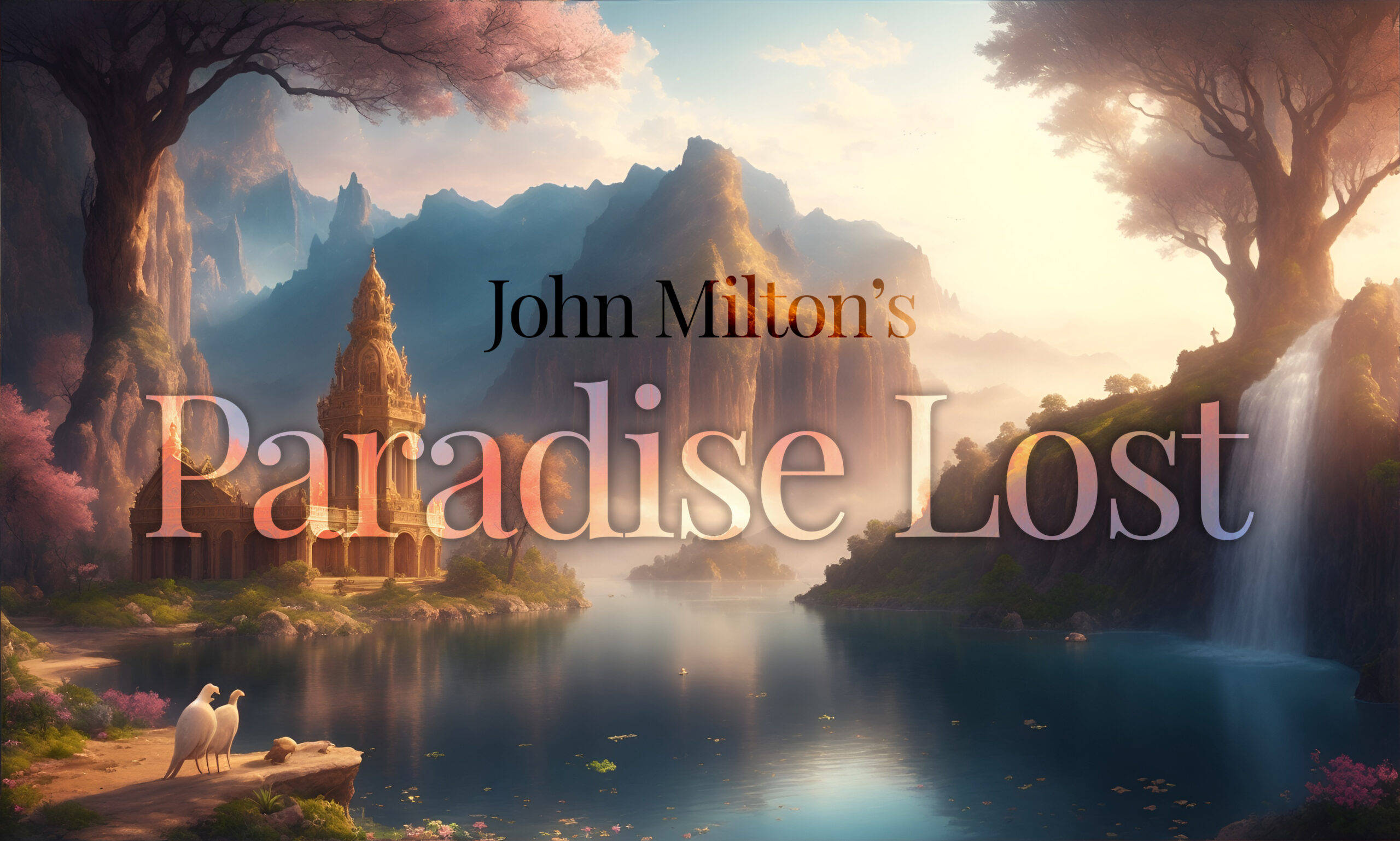
Paradise Lost as an Epic
Paradise Lost, written by John Milton and published in 1667, is widely regarded as one of the greatest epic poems in the English language. It encompasses a vast scope of themes, characters, and events, and engages with profound theological, philosophical, and moral questions. In this analysis, we will explore the characteristics and significance of Paradise Lost as an epic, examining its structure, themes, and literary devices that contribute to its epic nature.
One of the defining features of an epic is its grand scale and breadth of subject matter. Paradise Lost certainly fulfills this criterion as it explores the Fall of Man, the rebellion of the fallen angels, the creation of the world, and the ultimate redemption and salvation of humanity. It encompasses the cosmic and the terrestrial, the divine and the mortal, and presents a sweeping narrative that spans both heaven and hell.
The structure of Paradise Lost adheres to the conventions of classical epics, such as Homer’s Iliad and Odyssey. The poem is divided into twelve books, each containing numerous sections and sub-sections. This division mirrors the epic tradition of breaking the narrative into manageable segments and facilitates the exploration of various characters, settings, and themes. Milton’s careful organization and pacing of the narrative contribute to the epic quality of the poem.
The theme of Paradise Lost revolves around the Fall of Man, specifically the disobedience of Adam and Eve and their subsequent expulsion from the Garden of Eden. This theme resonates with the foundational narratives of many epics, where the actions of the protagonists have far-reaching consequences. The fall of Adam and Eve not only affects their own lives but also shapes the course of human history. Milton presents this theme in an epic fashion, exploring the grand implications of their choices and their journey towards redemption.
Another characteristic of an epic is the presence of larger-than-life heroes and villains. In Paradise Lost, Satan emerges as a complex and compelling figure who embodies both the tragic and the diabolical. Milton’s portrayal of Satan as a fallen angel and the leader of the rebellion against God elevates him to the status of an epic hero. Despite his evil deeds, Satan possesses remarkable qualities such as courage, determination, and eloquence. He is a master manipulator and orator, using his persuasive rhetoric to rally the fallen angels and challenge the authority of God. Satan’s larger-than-life persona and his pivotal role in the narrative contribute to the epic nature of Paradise Lost.
Milton also explores the concept of theodicy, the attempt to reconcile the existence of evil with the concept of a benevolent and all-powerful God. This philosophical and theological theme is central to many epics, as they grapple with the fundamental questions of human suffering and the nature of divine justice. Milton’s portrayal of Satan’s rebellion and the fall of humanity raises profound questions about the nature of good and evil, the consequences of disobedience, and the complex interplay between human free will and divine providence.
The vivid and expansive descriptions of settings in Paradise Lost further enhance its epic quality. Milton depicts the heavenly realms, the earthly paradise of the Garden of Eden, and the fiery depths of hell in great detail. The lush imagery and sensory language transport the reader to these different realms, creating a sense of awe and wonder. The vastness of the landscapes and the cosmic scale of the events contribute to the epic scope of the poem.
Milton employs various literary devices that are characteristic of epic poetry. One such device is the invocation of the muse, which opens the poem and seeks divine inspiration. Milton calls upon the Holy Spirit to guide his writing and provide him with the necessary wisdom and insight to undertake the monumental task of narrating the fall of humanity and the subsequent redemption. This invocation establishes the elevated tone and the epic tradition in which the poem is situated.
Another prominent literary device in Paradise Lost is the use of epic similes, also known as Homeric similes. These extended and elaborate comparisons draw upon a vast range of subjects and metaphors, enriching the narrative and adding depth to the descriptions. For example, Milton compares Satan’s size to that of the Titans and describes his shield as “a broad circumference / Hung on his shoulders like the Moon” (Book I, lines 283-284). These similes contribute to the grandeur and vividness of the poem, heightening its epic quality.
The language and style of Paradise Lost also reflect its epic nature. Milton employs blank verse, a form of unrhymed iambic pentameter, throughout the poem. This flexible and rhythmic verse form allows for the expression of complex ideas and emotions, while also maintaining a sense of grandeur and majesty. The elevated language, rich imagery, and elaborate syntax further enhance the epic tone and atmosphere of the poem.
In conclusion, Paradise Lost possesses all the characteristics of an epic poem. Its grand scale, sweeping narrative, and exploration of profound themes contribute to its epic nature. Milton’s careful structure, thematic depth, and use of literary devices align the poem with the classical tradition of epic poetry. Through its portrayal of the Fall of Man, the complex character of Satan, and the exploration of theological and philosophical questions, Paradise Lost stands as a monumental work that continues to captivate readers and affirm its place in the canon of epic literature.
*****
Read More: Questions and Answers from Paradise Lost by John Milton


